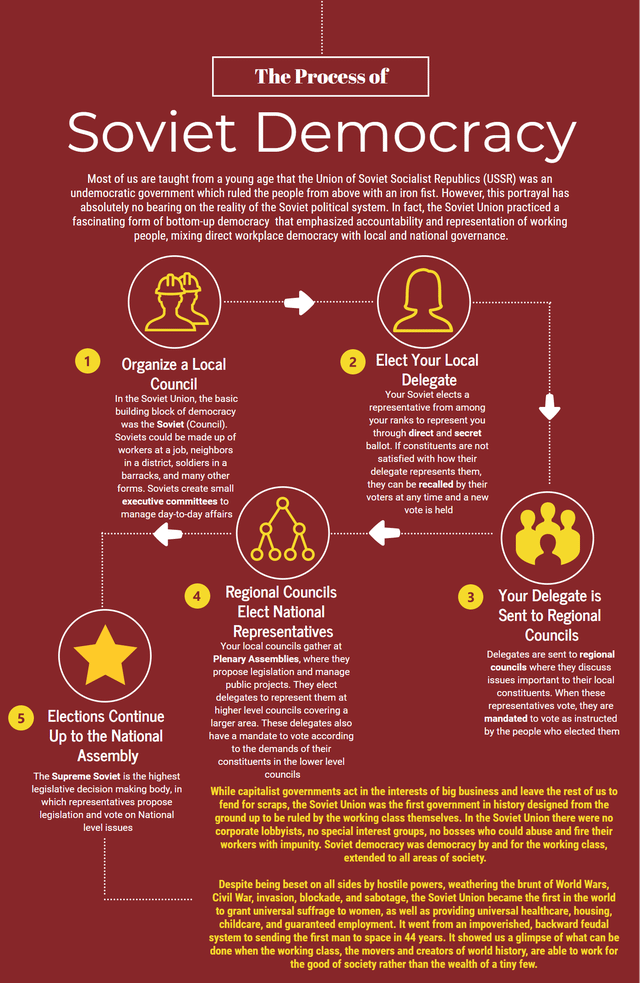This is it right here, the Dems (and even the Reps!) sometimes allow RCV at small scale to make it look like there's even a chance of it at large scale, but materially will never allow it to happen.
Cowbee
The error there is that it assumes Democrats are entitled to Leftist votes, despite not representing Leftists in any conceivable manner. It's why we see Muslim-Americans flocking to Jill Stein, for the majority of Muslim-Americans genocide against Palestinians is a hard no entirely.
And Mendelian genetics wrecks the party with the unhinged liberalism of accurate science supported by half of Pavlov's students?
In the beginning of the USSR, there was legitimate struggle against bourgeois science, like race science. Genetics was unfortunately overly combatted in the crossfire. The USSR was still far more dedicated to scientific pursuit than Capitalist Countries, and managed to get a man to space before even the US.
As for your books, you may realize that I am a bit short on time and do not have the energy to read 4 entire novel-length books instead of specific pages or chapters.
Then just read Blackshirts and Reds. If your time is so short that you can't read even 1 short book on the topic of dispelling myths about the USSR, then your time is too short to argue with people online about it too, no offense. Blackshirts and Reds is recommended reading for new Marxists in general because it's short and to the point, and written in common American language without requiring having read books and books of Marxist theory to understand.
If history is any indication, lasting change is won from the bottom-up. You have to get the masses at large on your side first and the best way to do it is to show them, in small steps, that it can be done and that it’s effective.
This is the opposite of correct, the ruling class will never do something because it's right or effective, but because they need to. Read Socialism: Utopian and Scientific, you're repeating the errors of the Owenites.
Ah yes, known liberals and fascists such as the other two people who ruled with Stalin and whoever believed in genetics. If diverse opinions were allowed, what was the entire focus on eradicating factionalism?
There's a difference between wrecking and having different opinions.
Could you cite some sources or elaborate on fighting against bureaucracy? Why was bureaucracy established and why did it remain after the war? How wasn't Stalin before Lenin's death a career politician?
Losurdo's Stalin: Critique of a Black Legend is a good book going over this. Stalin agreed with Lenin about how the beauracracy could grow, so he actively tried to combat it. He even edited records of meetings to reduce his applause and increase it for others. Stalin was elected, yes, but the beauracracy wasn't solidified until Kruschev. The necessity of rebuilding infrastructure and a destroyed public led to a rise in opportunism that was completed under Gorbachev, introducing new fixtures of government that stood against the rest, harming the centralized system and resulting in dissolution.
I'd read the books I linked if I were you.
Marxism is correct and more relevant than ever.
Definitely became overly-beaurocratized after WWII, but was generally far more democratic than Capitalist states
I'm referring to the book itself, you have a lot of confused ideas about the USSR itself. Blackshirts and Reds is another great "Myth Debunker."
I'll explain further, then: At first, the lower body elects the upper body. The upper body decides everything.
Wrong. The lower bodies also decide things among themselves particular to issues specific to them, and elect delegates for the larger area. Imagine a soviet of a single factory, then a soviet of a city composed of delegates from all of the factories, then a regional soviet, etc. Each rung governs their respective areas with matters exclusive to them. These were workers with instant recall elections if needed.
- Why not just skip the waste of time of the lower body voting on stuff? I can't find any time something like jury nullification of a really awful presidium policy happened.
Because the lower bodies vote on matters pertaining to themselves that don't affect others.
- Since whoever disagrees with the upper body gets expelled, the lower body will perpetually elect whomever the upper body wants. While this may have enabled a dictatorship of the proletariat for a while, this behavior blocked out a ton of new ideas and became problematic after Stalin's straight-up purging of opponents and entrenched an oppressive old guard, by whom Khrushchev got ousted trying to get rid of.
That's not really accurate. Diverse opinions were held and discussed, what was purged was liberalism and fascism, which were dangerous currents deliberately infiltrating the USSR, as well as wreckers like Trotsky who collaborated with fascists and liberals.
Secondly, Stalin fought against beaurocracy, it wasn't until WWII where the population was decimated and the USSR needed to be rebuilt that a beaurocratic class of "career politicians" began to take hold.
Again, I suggest reading more on the subject, you seem to be confused on the basic structure itself, causing other confusions to spring forth.
Nah, it was democratic, moreso than Capitalist countries. You can read This Soviet World if you want a look at it.
Almost every democratic structure practices Democratic Centralism, it just means the group is bound to the democratic results.
Soviet Democracy. Workers elect delegates from among themselves, who can then be subject to instant recall elections at any time. Remove the "career politician" aspects from government.

This is wrong. The parties don't see the views of the people that vote for them, just that they recieved more or fewer votes. If Leftists vote Dem 100% of the time, then the Dems will never move any more to the Left, because they already have their vote.